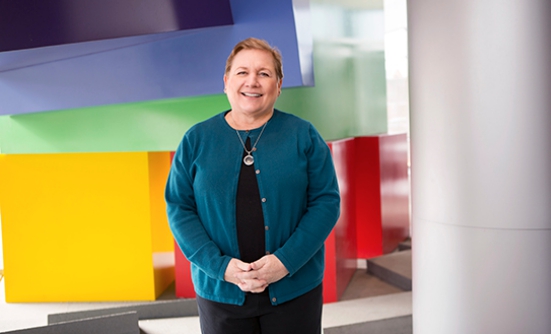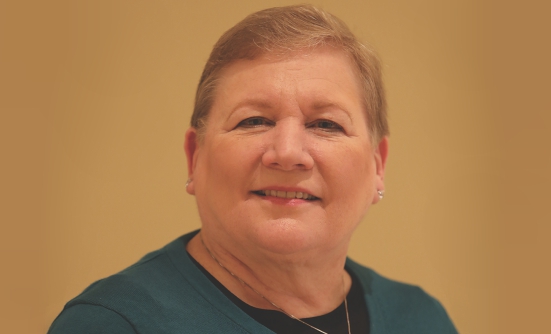I write to you today to begin an important conversation. A conversation just between you and me about palliative care. When someone hears their doctor or nurse mention the words “palliative care,” many times their immediate reaction is, “I don’t want that yet.” However, when palliative care is suggested, there is a high probability that a referral to a palliative care expert would improve the patient’s quality of life. I’d like to discuss palliative care with you; what it is, what it isn’t, and why it is valuable to breast cancer patients.
Palliative care is a relatively new medical specialty. It’s important to know that palliative care is not the same as hospice. Palliative care focuses on improving or maintaining the quality of life of a patient and providing comfort to people of all ages with serious, chronic, or life-threatening illnesses. The multidisciplinary palliative care team works to either maintain, improve, or restore a patient’s quality of life.
Quality of life should always be a priority in cancer care. When someone has lost their quality of life, living can become more of a chore than a pleasure. Whether it be chronic pain, neuropathies, headaches, inability to care for yourself due to physical disabilities, another treatment side effect, or a disease symptom that has impaired your joy for living, palliative care should be initiated to identify the cause of that impairment and restore your joy.
Let me tell you a story about a patient I knew well who benefited from palliative care. Although the example is not a breast cancer patient, it remains one of the best stories I can share with you because of the profound impact palliative care had on this patient and his family. The patient had advanced prostate cancer. He was a farmer with a strong work ethic raised to believe that a productive life is the only life worth living.
One day while farming, he coughed rather violently, which resulted in severe back pain. His pain was so severe that he couldn’t walk or get out of bed. His medical oncologist placed him on opioids, which helped his pain but caused him to remain in bed, sleeping most of the time. Because of his personal philosophy regarding the importance of productivity, he was angry, distressed, and simply didn’t want to live anymore if he were forced to remain in bed. When I learned of this situation, I recommended a palliative care consultation, and I asked him if he was familiar with the concept of palliative care. He responded, “Oh yeah. I know what that is. That’s when they have given up on helping you, so they put you in a room by yourself that has a hospital bed in it, and they put you in that bed and put the side rails up so you can’t get out. There is an IV hooked up to you with morphine, so you sleep all the time. And someone comes in every day to see if you have died. That’s palliative care.”
Nothing could have been further from the truth. I made a mental note to avoid the term “palliative care” when talking with him. Instead, I said, “I am going to schedule an appointment for you with Tom, our Johns Hopkins Quality of Life Coach. He specializes in both restoring a patient’s quality of life and preserving their quality of life. Yours needs restoring.”
The patient said, “That’s what I need. I need my quality of life back.”
I contacted Tom, our Director of Palliative Care, and explained the patient’s situation, his perception of palliative care, and details of his life—including his love of farming.
At their first meeting, Tom asked the patient to share 3 things that brought him joy before the debilitating back pain.
The patient said, “I have no joy at all right now. But before this severe pain my joys were these 3 things—I provide loans to young men who want to become farmers. There are 2 young men waiting to meet with me, and right now I can’t because I can’t think straight taking these pain pills.
“My second joy is visiting with my granddaughter and her children, my great-grandchildren. They came to see me earlier this week, 6 hours round trip of driving, and I missed the whole visit, sleeping in bed.
“My third joy, which is the most important to me, is farming. I want to get back out on my combine and pick my field corn and soybeans. I want to feel productive again.”
Tom said, “Those 3 joys are our 3 goals for your quality-of-life team.”
Tom went on to explain the results of a recent x-ray. The patient had a fracture of a vertebra in his back; the fracture was the culprit of the pain. Tom arranged for a procedure to repair the vertebra in the hope of relieving the patient’s pain and allowing him to become active once again.
Tom and the patient agreed to a partnership that day in which they would always be honest with each other. Tom asked how long the patient would need to be in the fields to still feel like a farmer. The answer was 30 minutes a day. Tom assured the patient that he would likely be back out harvesting crops in 2 to 3 weeks. With this news, there was true joy in that room. Hope was running deep.
Ten days after the procedure, Tom received a call from the patient, “Guess where I am right now?”
Tom said, “I hear the engine running, and by your happy voice I assume you are out on the combine. What are you picking right now?”
“Field corn. And I am keeping my promise to you. I am only out here for 30 minutes.”
“That’s great. Tell me about your other 2 joys.”
“This morning I met with the 2 young men I told you about and gave them a farm loan. I think they will make good farmers. And my granddaughter and 2 great-grandchildren are coming to visit. Thank you, Tom, for giving me my life again. Life is good.”
Now, why did I give you this patient as an example? Because this patient was my father. Without a palliative care intervention, I cannot imagine what would have become of my dad. With palliative care, he got his pain in control without opioids, had his joys restored, and was able to enjoy life on his own terms, based on how he defined his own quality of life.
Yes, in most cases, palliative care is provided to patients with advanced cancer of some type; however, it should also be offered to patients who are receiving treatment with curative intent but are experiencing debilitating side effects from that treatment.
If you are experiencing side effects from treatments, and your oncologists are having difficulty managing them effectively, request a consultation with palliative care. Your nurse navigator can help to make this referral.
Remember, palliative care isn’t “end-of-life care” by any means. It may be an addition to your care that allows you to continue enjoying your life and maintain your quality of life as you define it.










